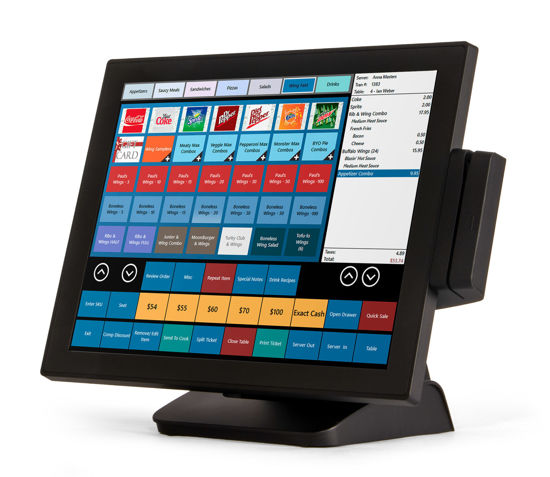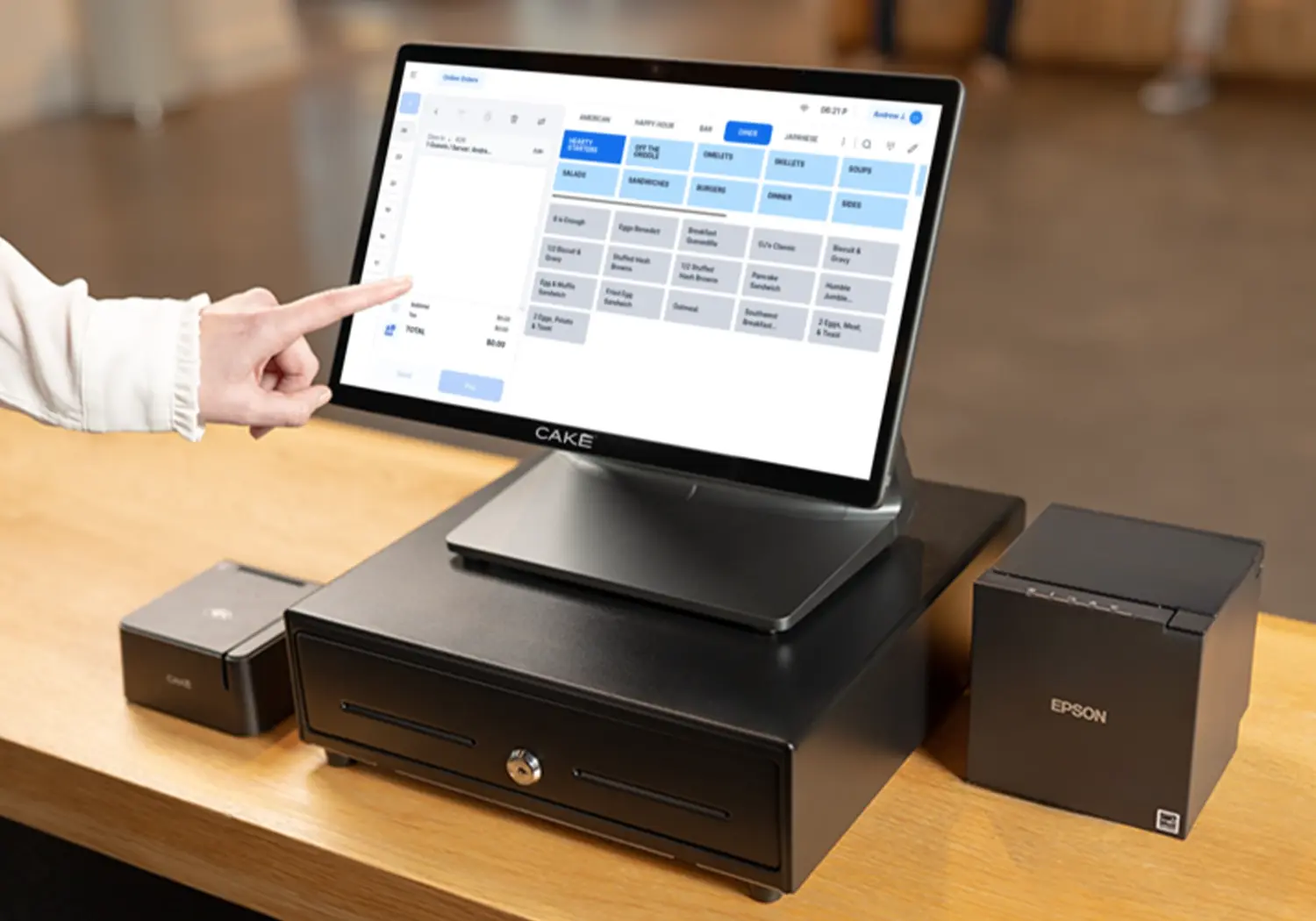9 Easy Facts About Restaurant Pos Shown

Pos System for Small Business: Retail Point-Of-Sale Solutions Streamline Deals
Pos System For Small Business - The Facts

Hardware Parts of a Point of Sale System What makes a POS system tick? It's not simply software; the hardware plays a starring function. Believe of it as the body check here to the software's brain. Without the ideal hardware, even the most advanced POS software is just a pretty face. Important POS Hardware So, what are the must-haves? Let's break it down. The central processing system, often a computer or tablet, is the heart of the operation. The display or touchscreen display permits personnel to engage with the system. A barcode scanner speeds up the checkout procedure. Keep in mind the days of manually going into each code? The trusty invoice printer supplies customers with a record of their purchase. A cash drawer keeps your cash safe and arranged. A card reader permits customers to pay with credit or debit cards. Diving Deeper: Beyond the Fundamentals But wait, there's more! Depending upon your company, you might require specialized hardware. A dining establishment may integrate cooking area printers to relay orders, while a retail store might utilize label printers for product tagging. Ever wonder how your regional bakeshop instantly prints those delicious-looking labels? Selecting the Right Hardware: A Balancing Act Picking the best hardware isn't just about buying the most expensive equipment. It's about discovering the sweet spot in between performance, durability, and spending plan. A small company just starting might choose a more fundamental setup, while a high-volume retailer will require robust, high-performance makers. Is it much better to buy new or used? Consider your alternatives thoroughly. A brand-new system offers the most recent innovation and guarantee protection, but a reconditioned system can save you money. The Future of POS Hardware What does the future hold? Expect to see even more integration with mobile gadgets, biometric scanners for employee authentication, and advanced analytics control panels showed on larger, clearer screens. Picture a world where stock is instantly updated in real-time as products are scanned-- a world where you can track your best-selling product from anywhere in the world. The possibilities are limitless, and the hardware is constantly evolving to satisfy the needs these days's services. Are you all set to update your point of sale system?
Software Features and Capabilities: The Heart of Your POS System
Ever view a seasoned barista slide through a busy early morning rush? Their trick isn't simply caffeine; it's a smooth dance with their POS system. The software application is the conductor of your business symphony, managing everything from sales to stock. However what notes should you be listening for? What capabilities truly matter in today's market?
Stock Management: Beyond Counting Beans
Forget spreadsheets that haunt your dreams. Modern POS systems provide real-time inventory tracking, informing you when your stock of artisanal coffee beans dips precariously low. Believe of it as a digital guardian angel, preventing those awkward "Sorry, we're out!" moments to clients. What if you could likewise anticipate demand based on historic data? Many systems now offer forecasting tools, an effective weapon versus overstocking and lost sales. This helps prevent the dilemma of lacking popular items or building up excess inventory of slow-moving products, both of which can constrain cash flow and area.
Sales Reporting and Analytics: Decoding the Information
Sales data is the brand-new gold, and your POS system is the miner. Forget feeling in one's bones just how much you offered today. Dive deep into the information to discover trends, identify your best-selling items, and understand consumer habits. Which menu item sets completely with the everyday special? Which promo resonated most with your clients? These insights are not simply fascinating; they're actionable intelligence. Without dependable sales reporting, navigating the complexities of service decision-making ends up being like cruising without a compass, increasing the possibility of errors and missed out on opportunities.
Client Relationship Management (CRM): Structure Bridges, Not Walls
Remembering a regular customer's name and preferred order is captivating, however scaling that personal touch is tricky. POS systems with CRM capabilities allow you to track consumer purchase history, preferences, and even birthdays. Picture instantly offering a discount on their birthday-- a small gesture that cultivates commitment and motivates repeat company. There is the prospective snag of bad information quality, which can lead to inaccurate client profiles and inefficient marketing efforts.
Payment Processing: Enhancing the Transaction
The checkout experience can make or break a sale. Smooth combination with different payment methods-- credit cards, mobile wallets, even copyright-- is non-negotiable. Can your system manage split payments? Does it use safe and secure tokenization to protect client data? A cumbersome payment process is like striking a sour note in your organization symphony, possibly interfering with the whole efficiency. Making sure compatibility with evolving payment technologies and adherence to security standards are critical for keeping customer trust and functional performance.
Staff Member Management: Keeping the Team in Sync
From clocking in and out to handling approvals and tracking efficiency, employee management includes streamline operations and improve accountability. Is scheduling a headache? Many POS systems use integrated scheduling tools, enhancing staffing levels based on forecasted need. A common challenge that is often neglected is the obstacle of integrating worker management functionalities with payroll systems, which can lead to errors and inefficiencies in wage estimations.
Advanced Characteristics: Leveling Up Your Operations
- Table Management: Suitable for dining establishments, this feature allows you to picture your dining-room, track table status, and manage appointments.
- Loyalty Programs: Reward your finest consumers and encourage repeat organization with integrated loyalty programs.
- Online Buying Combination: Effortlessly incorporate your POS system with online buying platforms to broaden your reach.
Picking the best POS system is about more than just performance; it has to do with finding a partner that can grow with your business. Consider your current requirements, expect future development, and do not hesitate to ask the tough concerns. The best software can change your service from a disorderly cacophony into an unified work of art.
Industry-Specific POS System Applications
Think about the regional bakeshop, busy with early morning customers craving fresh croissants. A generic POS system might deal with deals, however can it manage complex dishes, track ingredient inventory, or immediately change production schedules based on sales information? Most likely not. That is where the charm of industry-specific POS systems shines.
Dining establishments and Hospitality
For busy dining establishments, speed and precision are critical. The number of times have you seen servers handling orders, modifications, and splitting expenses, all while attempting to provide outstanding service? A restaurant POS system enhances these processes, enabling table management, kitchen area order tickets, and even online purchasing combination. These systems frequently include features like ingredient-level inventory tracking, crucial for handling food expenses and reducing waste. Ever question why your preferred dish is often unavailable? It may stem from a lack of proper stock management.
- Table Management
- Cooking Area Order Tickets
- Online Buying Integration
- Ingredient-Level Inventory Tracking
Retail Solutions
Retail, with its varied stock and client interactions, requires a various set of tools. Envision a store clothing shop having a hard time to keep track of sizes, colors, and seasonal collections utilizing a basic checkout system. An industry-specific retail POS system uses functions like barcode scanning, consumer loyalty programs, and comprehensive sales reporting. These systems can even integrate with e-commerce platforms, providing a smooth omnichannel experience for clients. Did you understand some retail POS systems can predict future sales trends based on historic data? Now that is effective!
The Perils of a Mismatch
Picking the wrong POS system can develop substantial functional obstacles. A clothes store using a restaurant POS, for instance, would discover it inappropriate for managing stock with sizes and colors. The lack of appropriate reporting and analytics could result in misinformed getting choices and lost income. The outcome might be similar to trying to fit a square peg in a round hole.
Secret Factors to consider
Selecting an industry-specific POS system needs careful examination. Consider your organization's distinct needs and operational workflows. Does the system incorporate with existing software application? Does it use the required reporting abilities? Is it scalable to accommodate future growth? A well-chosen POS system is not simply a transaction tool; it's a tactical possession that can drive efficiency, improve client fulfillment, and ultimately, improve your bottom line. Remember, it is a financial investment in your organization's future, not simply a cost.
Security Considerations for Point of Sale Systems
Ever heard the tale of the mom-and-pop shop that lost whatever because of a single, overlooked security defect in their POS system!.?. !? It's a cautionary tale, and it highlights an important aspect frequently eclipsed by the appeal of expensive features and structured operations. The reality is, a POS system is only as good as its security. What good is a system that crunches numbers in a flash if it permits lawbreakers to swipe client's information simply as rapidly?
The Vulnerability Minefield
The digital landscape is a battleground. Every POS system, regardless of size or sophistication, is a potential target. Are you really prepared for the dangers hiding around the corner? The genuine pinch comes when you find that your out-of-date software has an open hole that hackers can exploit, turning your company into an unwitting accomplice in identity theft. The problem is that hackers are crafty and are constantly changing their strategies.
Common Security Spaces and Expert Tips
- Weak Passwords: "Password123" isn't sufficing. Usage strong, distinct passwords for all POS system accounts and alter them regularly. Two-factor authentication is a must.
- Unsecured Networks: Your Wi-Fi is like leaving the front door open. Protect your network with strong file encryption (WPA3 if possible) and think about a separate network for your POS system.
- Outdated Software: Software application suppliers spot security holes all the time. Failing to update resembles inviting problem. Set up automated updates or schedule regular upkeep.
- Worker Training: Your staff is your first line of defense. Train them to acknowledge phishing attempts, safeguard passwords, and report suspicious activity.
Information File Encryption: Your Guard Versus the Dark Arts
Consider information file encryption as a secret code. It scrambles delicate details, like charge card numbers, making it unreadable to unapproved users. Without encryption, your clients' financial details resemble sitting ducks, ripe for the picking by cybercriminals. It's not just about securing your consumers; it has to do with protecting your reputation and avoiding significant fines.
PCI Compliance: The Rulebook You Can't Disregard
If you accept charge card, you're bound by the Payment Card Market Data Security Requirement (PCI DSS) It's a set of security requirements designed to safeguard cardholder data. Stopping working to comply can result in fines, charges, and even the loss of your ability to process credit card payments. It's a headache, yes, but it's a necessary one. Think of PCI compliance as the cost of doing service in the digital age.
Consider this: every deal processed through your point of sale is a potential entry point for malicious actors. By carrying out robust security steps, you're not simply safeguarding your business; you're protecting your clients' trust and ensuring the long-term practicality of your operations. The security of your POS system isn't just a technical issue; it's an organization important. It requires constant watchfulness, proactive procedures, and a dedication to remaining ahead of the curve.